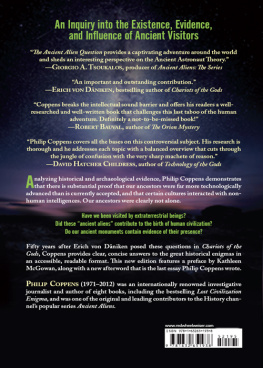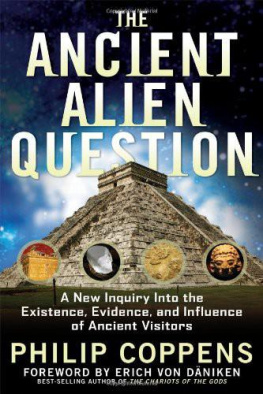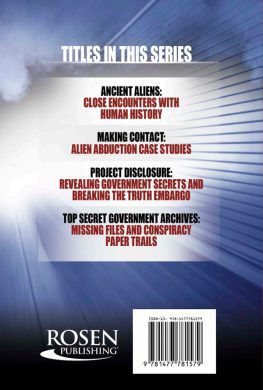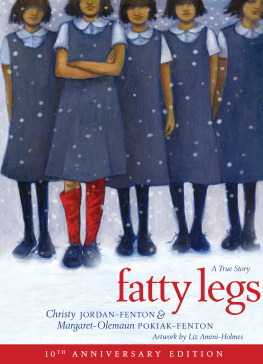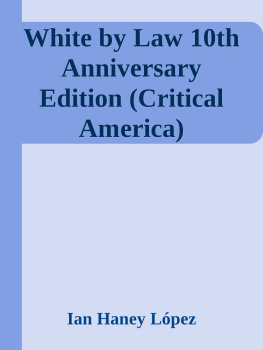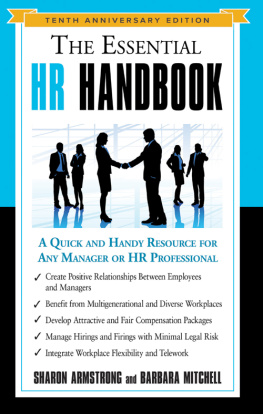Philip Coppens - Ancient Alien Question, 10th Anniversary Edition
Here you can read online Philip Coppens - Ancient Alien Question, 10th Anniversary Edition full text of the book (entire story) in english for free. Download pdf and epub, get meaning, cover and reviews about this ebook. year: 2021, publisher: Red Wheel Weiser, genre: Religion. Description of the work, (preface) as well as reviews are available. Best literature library LitArk.com created for fans of good reading and offers a wide selection of genres:
Romance novel
Science fiction
Adventure
Detective
Science
History
Home and family
Prose
Art
Politics
Computer
Non-fiction
Religion
Business
Children
Humor
Choose a favorite category and find really read worthwhile books. Enjoy immersion in the world of imagination, feel the emotions of the characters or learn something new for yourself, make an fascinating discovery.
- Book:Ancient Alien Question, 10th Anniversary Edition
- Author:
- Publisher:Red Wheel Weiser
- Genre:
- Year:2021
- Rating:5 / 5
- Favourites:Add to favourites
- Your mark:
- 100
- 1
- 2
- 3
- 4
- 5
Ancient Alien Question, 10th Anniversary Edition: summary, description and annotation
We offer to read an annotation, description, summary or preface (depends on what the author of the book "Ancient Alien Question, 10th Anniversary Edition" wrote himself). If you haven't found the necessary information about the book — write in the comments, we will try to find it.
Ancient Alien Question, 10th Anniversary Edition — read online for free the complete book (whole text) full work
Below is the text of the book, divided by pages. System saving the place of the last page read, allows you to conveniently read the book "Ancient Alien Question, 10th Anniversary Edition" online for free, without having to search again every time where you left off. Put a bookmark, and you can go to the page where you finished reading at any time.
Font size:
Interval:
Bookmark:
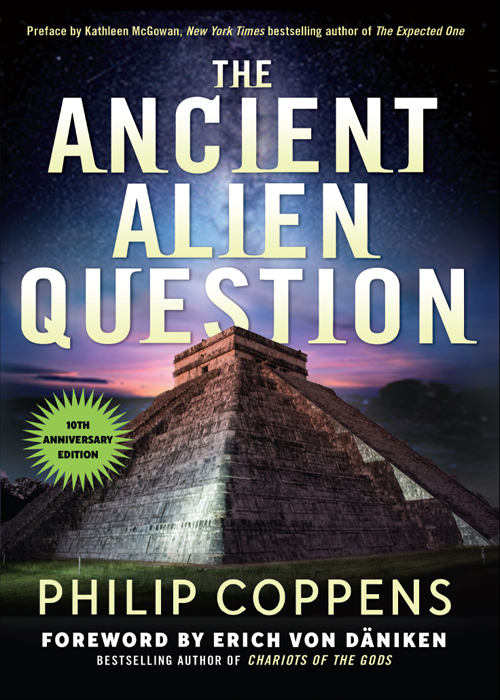


This edition first published in 2021 by New Page Books, an imprint of
Red Wheel/Weiser, LLC
With offices at:
65 Parker Street, Suite 7
Newburyport, MA 01950
www.redwheelweiser.com
Copyright 2012, 2021 by Philip Coppens
Foreword copyright 2021 by Erich van Dniken
Preface copyright 2021 by Kathleen McGowan
All rights reserved. No part of this publication may be reproduced or transmitted in any form or by any means, electronic or mechanical, including photocopying, recording, or by any information storage and retrieval system, without permission in writing from Red Wheel/Weiser, LLC . Reviewers may quote brief passages. Previously published in 2012 by New Page Books, ISBN: 978-1-60163-198-5
Images on are Philip Coppens.
Image on is Erich von Dniken, used with permission.
Images on are The Estate of Stan Hall, used with permission. [website]
Image on is Marsyas, made available as part of the Creative Commons License on Wikimedia.
Image on is Madman2001, made available as part of the Creative Commons License on Wikimedia.
Image on is Wikipedia.
Image on is Jon Rolls, used with permission.
Images on are Hartwig Hausdorf, used with permission.
Images on are NASA.
Image on is Christina Rutz, made available as part of the Creative Commons License on Wikimedia.
Image on is from 1875 and The Hearst Museum.
ISBN: 978-1-63265-193-8
Library of Congress Cataloging-in-Publication Data available upon request.
Cover design by Howard Grossman
Cover photograph by Sergio Amiti/Getty Images
Typeset in Galliard
Printed in Canada
MAR
10 9 8 7 6 5 4 3 2 1
www.redwheelweiser.com/newsletter.
By Erich von Dniken
Dear reader,
From 1953 until 1958, I was a student at the Collge St-Michel in the small Swiss town of Fribourg. There, among other things, we learned Old Greek and Latin. Time and again we had to translate texts from the Bible, the Old Testament, from one language to the other. I read in Genesis: But when people started to multiply on the earth, and daughters were born, the sons of God saw that the daughters of men were beautiful, and they took as their wives any they chose.
I was confused. What sons of Gods? My professor said that this referred to fallen angels. Whatfallen angels? I wondered. Later, we translated the words of the biblical prophet Ezekiel as he described seeing a vehicle come out of the clouds with a lot of noise. He described the wings of the vehicle, its wheels, and even its metal legs. My professor believed that this referred to a vision, and that Ezekiel had described God in his chariot.
Doubts gnawed at my beliefs, and, as a 17-year-old, I wanted to know whether other cultures in ancient times had similar descriptions to those of the Christian-Jewish tradition. So while my classmates were playing soccer, I sat in the university library and read... and read... and read. Soon I understood that many ancient human traditions contained similar reports to the stories in the Bible, only with other words and other heroes. Could one believe the texts?
At that time I decided to take those texts that had been written in the first-person, as an eyewitness report, to be true. And there were many. Again and again I encountered descriptions of gods who drove around in the clouds, of beings who came down to earth with smoke, fire, earthquakes, noise, and selected people who had the privilege of being taken to heaven by the gods. There, these people experienced a training program. Even artificial insemination and changes in the genetic code were reported in the old books I read.
At some point I realized that all these actions were not compatible with the traditional idea of the Beloved God. But when I replaced the word god with the word extraterrestrial, everything suddenly made sense.
In 1965, I had my manuscript for Chariots of the Gods finishedbut found no publisher. From 24 publishing houses, I got the usual rejection: Sorry... not suitable for our program... too unprofessional... and so on.
At that time I was director of a first-class hotel in the Swiss ski resort of Davos. (I come from a restaurant family.) One of my guests, the chief editor of a German magazine, was friends with the head of the large German publishing house ECON, and he arranged a meeting for me. Chariots of the Gods thus found a publisher. In May 1968, the book was #1 on all German bestseller lists.
I gave up my hotel career and devoted myself entirely to my new profession: researcher of ancient texts and searcher for clues in archaeological ruins. Chariots of the Gods was a provocative book that had more than 230 question marks. I had written the book not in a scientific form of writing, but in a popular one. It contained some errors (unavoidable for a young author). In the scientific literature it is no different: There, too, one finds errors in books that are 30 or 40 years old. After all, science is a living thing, and not a religion, in which one must simply believe. After Chariots of the Gods there followed a further 28 nonfiction books. I corrected old errors and misunderstandings in the new books. Today there is for me not the slightest doubt: Millennia ago, extraterrestrials visited the Earth. These visits became myths, legendsand also religions.
We should set up new branches of science; for example, a Central-American-Indology, in which the links between the cultures of Central America and India are examined. Or a New-Age-Philology, in which old texts can be retranslated such that the religious heaven of bliss becomes the universe ordepending on the circumstancesgiant spaceship. Perhaps a science of the Chronology of the gods, in which the unspeakably complicated information about the gods from antiquity would be investigated in the aim of finding a common denominator. The questions when and how often the aliens were here would also be a research objective of the Chronology of the gods.
Our limited knowledge of reality is mostly based on the presentquite understandable, because we live in the now and not in the day before yesterday. What happened today, what makes headlines today, concerns us. What happened yesterday no longer interests us. This fatal short-sightedness robs us of the sense of historical events. We feel the presence of knowledge as a culmination of all knowledge from the past. We claim to be the best-informed society, and accordingly, all our ancestors knew much less than we do. However, this attitude makes us proud, it makes us rather contemptuously overlook the past. This is dangerous, because those who do not know history are doomed to repeat its mistakes. This backward attitude has led historians and archaeologists to believe little about our ancestors. The astonishing thing is the smoothness with which this fallacy is implemented in practice: If an old historian such as the Greek Herodotus, 2,500 years ago, says something that fits into our current knowledge, then that statement is happily placed on record. But if the same historian, often on the same page, makes a remark that does not suit us, we label it false without batting an eyelash, calling him a liar, an exaggerator; degrading him to the level of an ignorant person who has not understood anything.
Next pageFont size:
Interval:
Bookmark:
Similar books «Ancient Alien Question, 10th Anniversary Edition»
Look at similar books to Ancient Alien Question, 10th Anniversary Edition. We have selected literature similar in name and meaning in the hope of providing readers with more options to find new, interesting, not yet read works.
Discussion, reviews of the book Ancient Alien Question, 10th Anniversary Edition and just readers' own opinions. Leave your comments, write what you think about the work, its meaning or the main characters. Specify what exactly you liked and what you didn't like, and why you think so.

